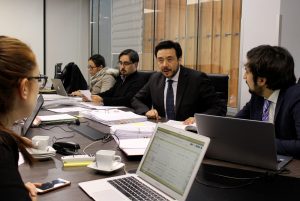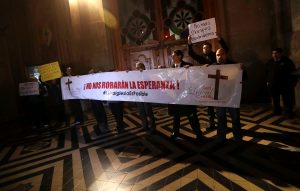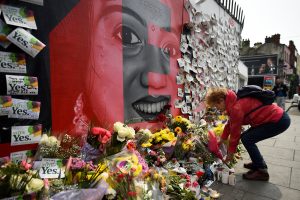
By Philip Pullella
VATICAN CITY (Reuters) – Calls by a Roman Catholic archbishop and his conservative backers for Pope Francis to resign could make it difficult, if not impossible, for him to do so, Church experts say.
Canon (Church) Law says a pope can resign but the decision must be taken freely. In 2013, Francis’s predecessor, Benedict, became the first pontiff in six centuries to resign.
Benedict, then 85, abdicated because he said he no longer had the strength to run the Church. Unlike now, no-one had publicly demanded his resignation, which was a surprise even to top Vatican officials.
HOW DID THE VATICAN AND THE POPE GET TO THIS POINT?
In an 11-page statement published on Aug. 26, Archbishop Carlo Maria Vigano, the former Vatican ambassador to Washington, launched an unprecedented broadside by a Church insider against the pope and a long list of Vatican and U.S. Church officials.
He said that soon after the pontiff’s election in 2013, he told Francis that Theodore McCarrick, the former archbishop of Washington, D.C., had engaged in sexual misconduct.
He said the pope did nothing and even lifted sanctions that had been imposed on McCarrick by Benedict, the former pope.
Critics of Vigano say his statement has holes and contradictions. They say McCarrick disregarded any sanctions, appearing in public often, even alongside Benedict, in the years after Vigano says the former pope sanctioned McCarrick. Vigano stands by his accusations.
Vigano, who is in hiding and communicating exclusively through reporters for conservative media outlets who helped him prepare, edit and distribute the statement, says there is a “homosexual network” in the Vatican that promotes the advancement of gays in the Church.
His statement included no supporting documents.
In July, after U.S. Church officials said there was evidence that McCarrick, 88, had sexually abused a minor more than 50 years ago, Francis sacked him as cardinal and ordered him to live the rest of his life in seclusion, prayer and penitence. Francis’ defenders say he took strict action against McCarrick while Benedict had not.
Francis told reporters on his plane returning from Ireland that he would “not say one word” about Vigano’s accusations. “Read the document carefully and judge it for yourselves. It speaks for itself,” he said.
WHAT IS THE GENESIS OF THE CURRENT CONSERVATIVE ESCALATION?
Since his election in 2013, conservatives have sharply criticized Francis, saying he has left many faithful confused by pronouncements that the Church should be more welcoming to homosexuals and divorced Catholics and not be obsessed by “culture war” issues such as abortion.
Their attacks on the pope hit a new level with Vigano’s broadside. Much of the drama has been played out in newspapers and social media, part of what has become an often shrill proxy war between Francis’ defenders and Vigano’s allies, who back his call for the pope to step down.
WHAT DOES CANON LAW SAY ABOUT PAPAL RESIGNATIONS?
Canon 332, paragraph two, states:
“If it should happen that the Roman Pontiff resigns his office, it is required for validity that he makes the resignation freely and that it be duly manifested but not that it be accepted by anyone.”
Canon lawyers say much hinges on the interpretation of the word “freely” and whether the demands being made by the pope’s fiercest critics has constituted enough of a climate of duress to put its validity into doubt.
WHAT DO CANON LAW EXPERTS SAY?
“The pope has the right to freely resign. That’s what the canon says. The doubt is whether the situation Francis is in now really allows for a free choice because there is a political faction in the Church trying to force it,” said Nicholas Cafardi, former dean of Duquesne University School of Law.
“I don’t see how (the pope can resign freely) when you have people campaigning for it,” said Cafardi, who is also a former member of the Board of Governors of the Canon Law Society of America.
Kurt Martens, professor of canon law at the Catholic University of America in Washington, D.C., agreed.
“I think were are getting to the point of it becoming impossible because the pressure on him is so intense psychologically that it would be impossible to withstand and therefore it would be invalid,” Martens said.
A Rome-based canon lawyer, who spoke on condition of anonymity because of his position in the Church, said he believed a resignation could be possible but that “it would be very complicated and hairy” and its validity hotly contested because some would see it as a result of duress.
Edward Peters, a conservative canon lawyer based in Detroit, has said on his blog that Francis should not be considered any different to other bishops who canon law says should resign for just or grave causes. The pope is also bishop of Rome.
But some experts also say two former popes (Benedict and Francis) would be just too much for Catholics to digest and would confuse the faithful.
Father Raymond de Souza, a widely read conservative commentator based in Canada, said it would be wrong to treat “the papal office as something worldly than can be relinquished under adverse circumstances”.
WHAT DOES CANON LAW SAY ABOUT PAPAL CONTESTERS?
Canon 1373 says one “who publicly either stirs up hostilities or hatred among subjects against (a pope) … is to be punished by an interdict or by other just penalties”.
Cafardi said: “I think they (the harshest papal critics) are violating it (canon 1373) or are very close to violating it because of the hate they are trying to stir up against Francis”.
CAN A POPE BE DEPOSED?
Not these days. He can die in office or resign of his own free will. There is no impeachment procedure for a pope.
But Church history is nothing if not colorful. At the start of the 15th century there were three men claiming to be the true pope, each backed by political powers in Europe and Church factions. The Council of Constance, which ran from 1414 to 1418, deposed two of them and the third abdicated.
(Editing by Timothy Heritage)












